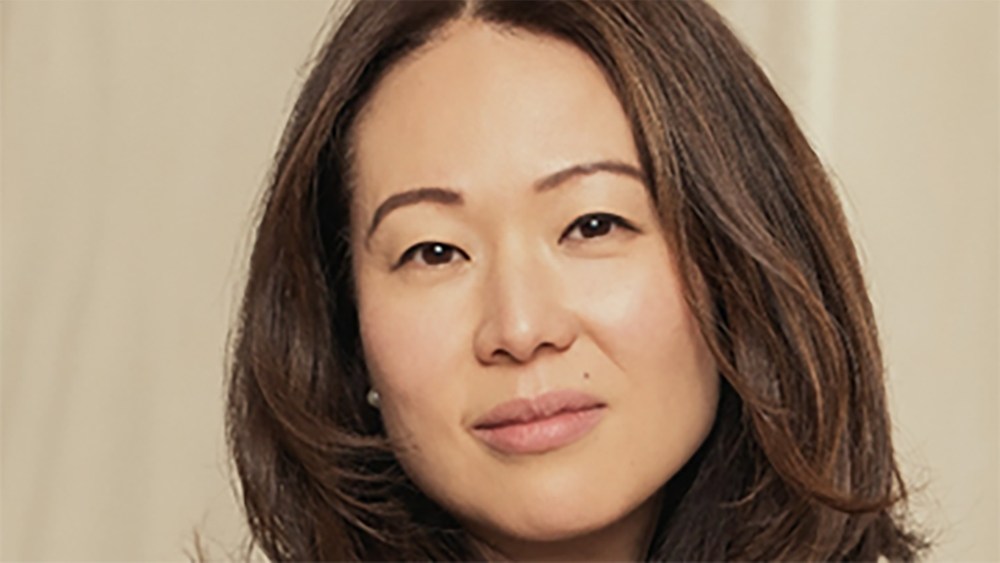CANNES — Soo Hugh, the showrunner of “Pachinko,” is advancing on multiple projects with a view to co-producing with or shooting in Korea or teaming with a Korean partner, she told on the eve of France’s Canneseries TV festival where she is serving on the main jury and was the subject of a Meet With keynote on April 25.
The Korean connection seems only natural. Hugh first made a large impact with AMC’s 2018 supernatural survival thriller “The Terror” Season 1, co-showrun with David Kajganich and set in the Arctic over 1845-48.
She then garnered glowing reviews for Apple TV+’s “Pachinko,” a series made with extraordinary sweep tracing down the generations from 1915 Korea under Japanese thrall to 1989 Japan the story of a family of Zainichi – Koreans who lost everything under Japanese rule and were forced to emigrate to Japan as second-class citizens.
Both shows, says Hugh, became “crossroads filmmaking between America and the rest of the world. The handshake, so to speak.” Hugh’s outreach forms part of modern TV’s double revolution, she argues.
“My coming of age in television in a way mirrors Canneseries as a festival. We probably grew up together in some ways. We’re lucky that like 15, 20 years ago, we had “The Sopranos,” “Madmen” and “Breaking Bad” starting. They laid the groundwork for that second revolution of film. For a long time, people thought American American filmmaking was the pinnacle. Now, we’re seeing that voice is shared: Globalization is making our stories better,” she argues.
According to an Omdia report released at October’s Mipcom, Korean content dominated Netflix’s non-English viewing in first half 2024 capturing 8.7% of Netflix’s global viewing, repping 8.19 billion hours. Spain came second capturing 3.28 billion hours.
“Korean filmmaking has become just so exciting and so dynamic that it’s the one marketplace that I feel still has that boom going,” says Hugh. “Technologically, Korea even surpasses America. You see that in just how fast they are as filmmakers and how they embrace new technologies even faster than we have in the U.S. now.”
In “Pachinko,” the family battles so much misfortune that they believe they live under a curse. Early stretches of Ep. 1 immerse audiences in Korea 1915, then dramatically cuts to Japan in 1989 as protagonist Sunja’s grandson, a bank executive, strides down a modern street in a natty suit and flamboyant tie. The effect is one of structural melodrama.
“Pachinko” scored a 97% reviewers’ rating. “Season 1 ranks among the finest original series Apple has produced,” ran one Variety review. Another Variety critic, however, noted Season 1 was at times “pulpy.”
At the core of this disparity may be Hugh’s embrace of melodrama, at the center of much Korean ad indeed Latin storytelling (think “Money Heist” and “Who Killed Sara?”). “I always say I do melodramas and in America it’s still has dirty connotations in some ways, but I proudly embrace melodrama,” says Hugh.
“Pachinko” Season 1 excelled “from its immersive period detail to the aching tragedy of the Baeks, buffeted by historical forces — colonization, conflict, racism — beyond their control,” Variety observed.
“I’m very much interested in storytelling about the big forces of history with a capital “H,” how that’s lived out by the everyday people on the ground.That’s why stories like ‘Pachinko’ has always moved me,” says Hugh.
Given current dramatic events, there’s an “urgency” about current creation, she recognises, which is reflected in Canneseries competition, its titles picturing protagonists whose world threatens to spin out of control. “It’s possible to hold entertainment and thoughts in the same hand. They don’t have to be in two separate fists, which is why I’m so excited about Canneseries. I do feel it’s a very European mentality to think you can be both entertained and also use your right brain cells,” she says.
Hugh signed a multi-year overall deal with Universal Content Productions in 2021. In early 2022, she launched through UCP the Thousand Miles Project, an incubator program for aspiring writers telling AAPI stories.
What advice would Hugh herself give to young writers at Canneseries?
“I can tell when people make shows or write movies where they don’t like their characters. I don’t understand how people write characters that they don’t love. You may love to hate them, but if they’re not characters you love, I don’t know why we put effort into them.”
And characters are the key to series. “I think the biggest misdirect is when shows think audiences care about the what, the who and where. But the thing that we really care about is the why,” says Hugh, citing “Adolesence.” “Everything else is just details. Anyone can fill those in. But the why is really hard to figure out, unless you really spend time with your characters and stories.”



